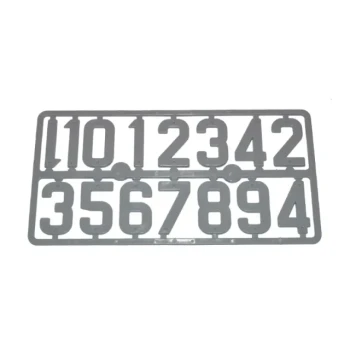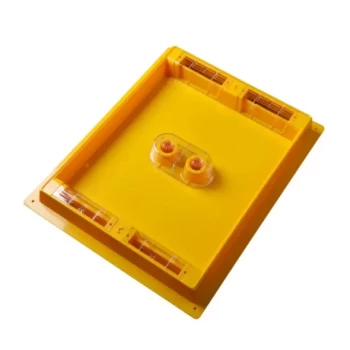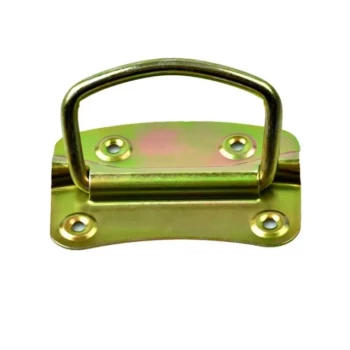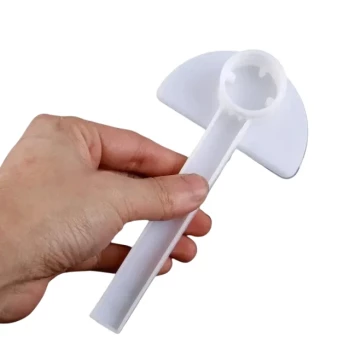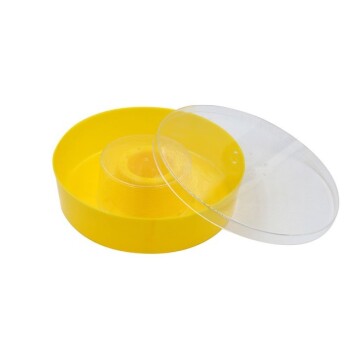At its core, a sound knowledge of beekeeping is vital because a nucleus hive, or "nuc," is not a static product but a dynamic, miniature ecosystem. Understanding the fundamental principles of bee biology, colony cycles, and health is what allows a beekeeper to successfully manage a nuc's development and leverage it as a powerful tool for apiary management.
A nucleus hive in the hands of a novice is simply a starter colony. In the hands of a knowledgeable beekeeper, it becomes a versatile instrument for raising queens, preventing swarms, and strengthening an entire apiary.
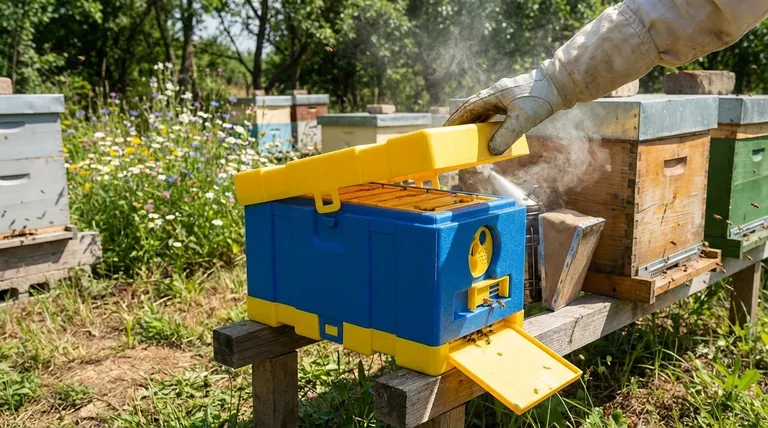
Beyond the Box: A Nuc as a Microcosm
A nucleus hive contains all the same elements as a full-sized colony: a queen, worker bees, drones, brood, honey, and pollen. However, its smaller size makes it more sensitive to changes and mismanagement.
Reading the Frames Correctly
The ability to "read" a frame is the most fundamental beekeeping skill. In a nuc, this means assessing the queen's performance by looking for a compact, solid brood pattern with eggs, larvae, and capped pupae.
It also involves checking for adequate food stores. A small nuc can quickly run out of honey and pollen, leading it to starve or abscond.
Managing Population and Growth
A nuc is designed for growth, but this growth must be managed. A beekeeper with a basic understanding knows that a rapidly expanding nuc can become honey-bound, where the queen runs out of space to lay eggs.
Without intervention, a strong nuc will eventually swarm, just like a full-sized hive. Knowing when to transfer the bees to a larger hive or pull frames of brood is essential to prevent this.
Identifying Pests and Diseases Early
A small colony is more vulnerable to pests and diseases like Varroa mites or chalkbrood. A knowledgeable beekeeper can spot these issues during routine inspections when the problem is small and easily treatable, protecting the investment and preventing spread.
From Basic Care to Strategic Management
The reference to "imaginative use" points toward proactive beekeeping. Once you master the basics, you can use nucs for far more than just starting a new hive.
Creating 'Walk-Away Splits' for Swarm Control
When a powerful colony is preparing to swarm, a beekeeper can pull a few frames of brood, bees, and a queen cell into a nuc. This "split" relieves congestion in the parent hive, preventing the swarm, and creates a new colony in the nuc.
Rearing and Banking Queens
Nucleus hives are the ideal environment for raising new queens from grafted larvae or selected queen cells. Their small population makes it easier for a new queen to mate and begin laying.
They also allow a beekeeper to "bank" a spare, mated queen. This provides an insurance policy if a larger production hive suddenly becomes queenless.
Boosting Weaker Colonies
A frame of sealed brood from a healthy nuc can be a powerful resource. It can be donated to a weaker hive to boost its population and help it recover, a technique that requires understanding how to balance colony strength.
Understanding the Trade-offs and Pitfalls
While powerful, nucs come with unique challenges that basic knowledge helps mitigate. Ignoring these can lead to failure.
The Risk of Absconding
A small colony has less invested in its location. If a nuc faces significant stress from a lack of food, pest pressure, or frequent disturbances, the entire colony may simply abscond and abandon the hive.
Over-Managing the Colony
New beekeepers are often tempted to inspect a nuc too frequently. This can chill the brood, stress the queen into stopping her laying, and disrupt the colony's delicate balance. Knowing when to leave the bees alone is as important as knowing when to intervene.
Misdiagnosing Queenlessness
A beekeeper might panic if they can't find the queen in a nuc. An experienced keeper knows to look for the evidence of a queen: freshly laid eggs. This prevents the disastrous mistake of trying to introduce a new queen to a hive that already has one.
Applying This Knowledge to Your Goal
Your approach to using a nuc should align with your beekeeping objectives. Basic knowledge is the foundation for achieving any of them.
- If your primary focus is starting your first hive: Master the weekly inspection, learn to identify all stages of brood, and recognize the signs of a healthy, growing colony.
- If your primary focus is swarm prevention: Use your understanding of population dynamics to split strong hives into nucs before they show signs of swarming.
- If your primary focus is expanding your apiary: Learn to use nucs to raise your own queens, which dramatically reduces costs and increases your self-sufficiency.
Ultimately, beekeeping knowledge is what transforms a simple box of bees into the cornerstone of a resilient and productive apiary.
Summary Table:
| Key Area | Why It's Crucial for Nucs |
|---|---|
| Frame Reading | Assess queen performance and food stores in a sensitive, small colony. |
| Population Management | Prevent swarming and honey-binding by controlling growth. |
| Pest & Disease ID | Spot issues like Varroa mites early when they are easiest to treat. |
| Strategic Use | Leverage nucs for swarm control, queen rearing, and boosting weak hives. |
| Risk Mitigation | Avoid pitfalls like absconding and over-management that can destroy a nuc. |
Ready to build a stronger, more productive apiary?
The right knowledge, combined with high-quality equipment, is the foundation of successful beekeeping. At HONESTBEE, we supply commercial apiaries and beekeeping equipment distributors with the durable, reliable supplies needed to manage nucs effectively and scale operations.
Let's discuss your specific needs. Contact our team today to learn how our wholesale-focused solutions can support your goals in queen rearing, swarm control, and apiary expansion.
Visual Guide
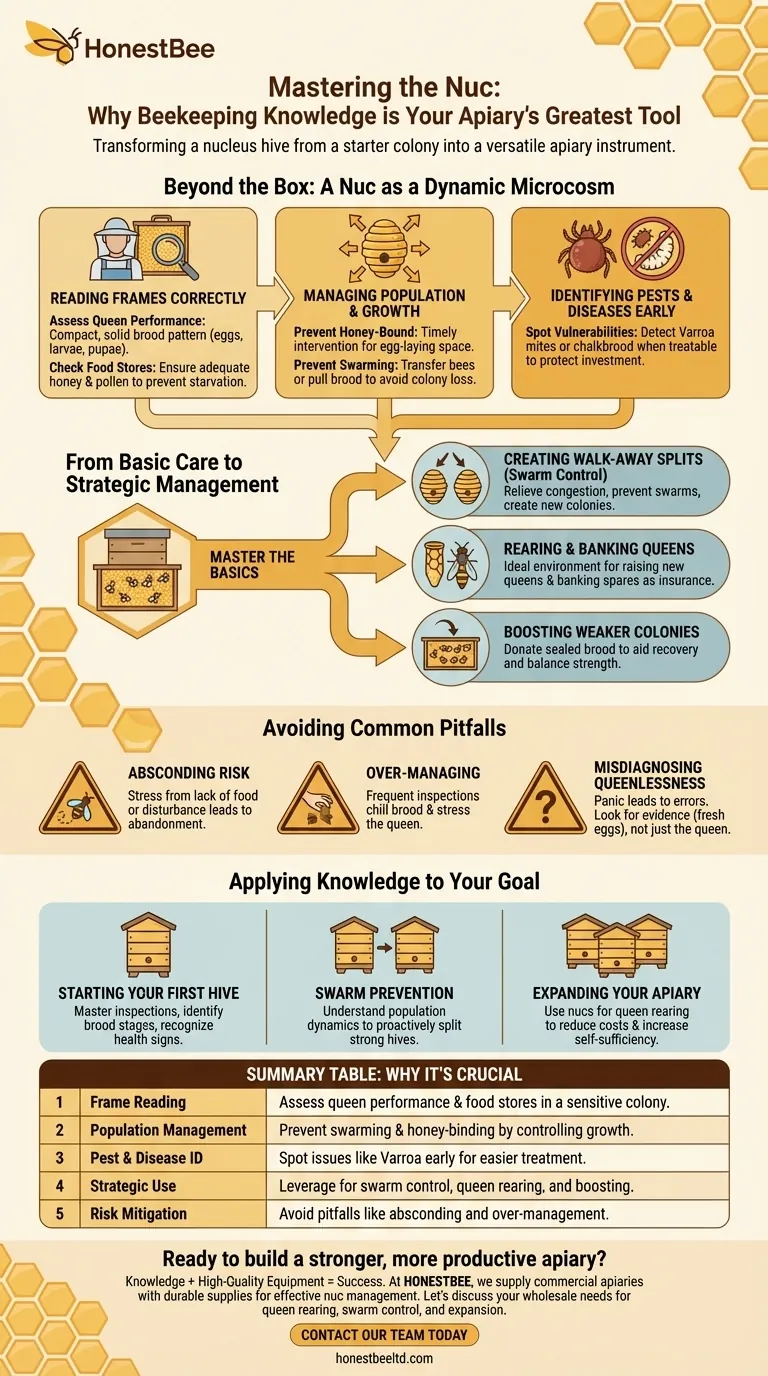
Related Products
- 4 Frame Plastic Nuc Boxes for Beekeeping Bee Nuc Box
- HONESTBEE Professional Long Handled Hive Tool with Precision Cutting Blade
- Modern Flat-Mount Hive Number Set for Beekeeping
- Professional Hive Front Entrance Bee Feeder
- Black Plastic Beetle Barn Hive Beetle Trap for Beehives
People Also Ask
- What is the step-by-step process for transferring a nucleus colony into a new hive? A Guide to Nuc Success
- What technical conveniences do mini nucleus hives provide? Streamline Bee Behavioral Observation and Data Collection
- Why is a nucleus colony (nuc) often preferred over a bee package for hive stability? Boost Colony Success
- When can nucleus colonies (nucs) be created? Optimal Timing for Apiary Growth and Survival
- How should a hive location be prepared before installing a nucleus hive? 4 Steps to Optimize Your Apiary for Success


